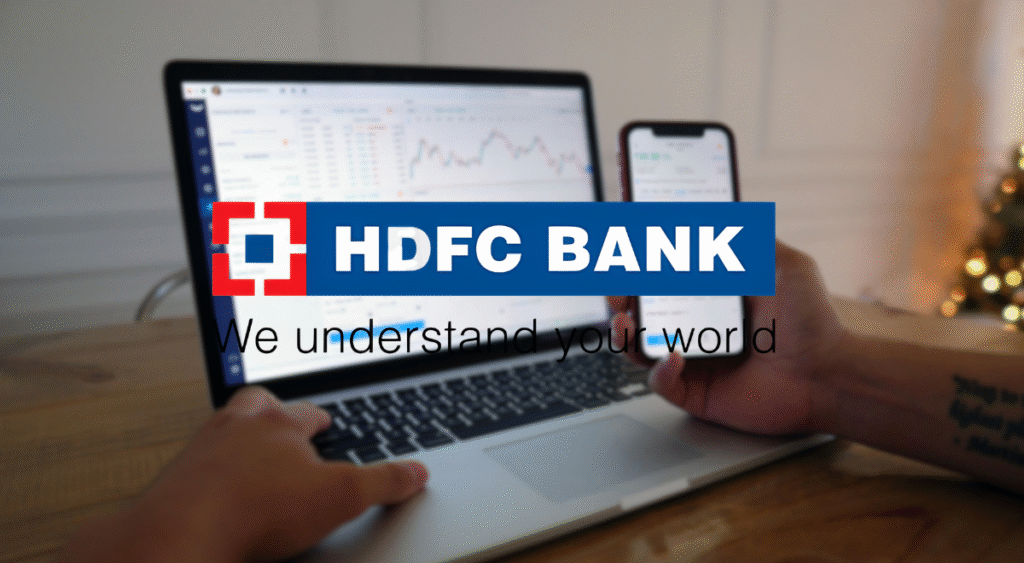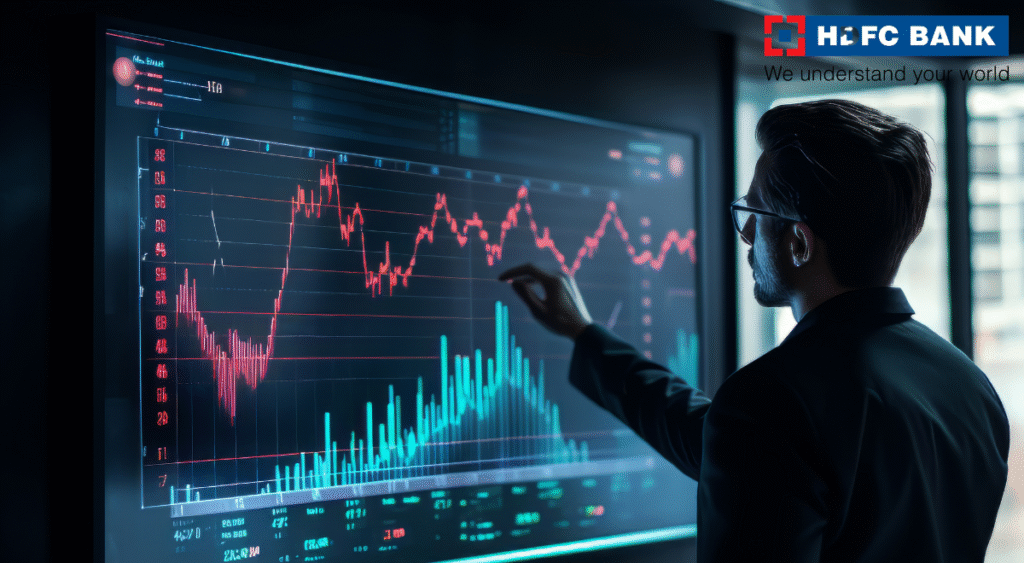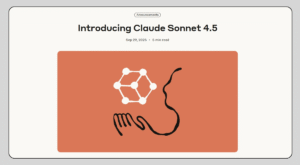
Shares of HDFC Bank Limited (NSE: HDFCBANK) were trading lower in early morning deals on Tuesday, falling 1.30% to ₹969.30 at 9:54 AM IST. The stock opened at ₹979.50, slightly above its previous close of ₹964.10, but soon slipped into the red amid volatility in banking and financial counters.
During the session so far, the stock hit a high of ₹985.70 and a low of ₹968.00, reflecting cautious sentiment among investors. The VWAP (Volume Weighted Average Price) stood at ₹974.59, while the adjusted price was noted at ₹982.10.
The total traded volume on NSE stood at 22.68 lakh shares, translating to a traded value of nearly ₹220.85 crore. The stock’s free float market capitalization was pegged at ₹14.79 lakh crore, maintaining its position as one of the largest private sector banks by market cap.
From a technical perspective, HDFC Bank’s stock remains above its 52-week low of ₹806.50 (recorded on 7th October 2024) but below its recent 52-week high of ₹1,018.85 (touched on 24th July 2025). The stock is trading with a daily volatility of 1.18% and an annualized volatility of 22.54%, suggesting steady but range-bound movements in recent weeks.

On the valuation front, the stock carries an adjusted P/E ratio of 41.30, broadly in line with the industry benchmark.
The dip in HDFC Bank’s share price also comes against the backdrop of weakness in benchmark indices, with the Nifty 50 trading down 0.74% at 24,784.00 during the same time.
Market analysts suggest that while HDFC Bank continues to maintain a strong balance sheet and leadership position in the private banking sector, short-term price movements are likely to remain influenced by overall market sentiment, credit growth outlook, and regulatory updates.
Disclaimer:- This article is for informational purposes only and does not constitute financial advice, investment recommendations, or stock tips. Investors are advised to conduct their own research or consult a certified financial advisor before making any investment decisions.







